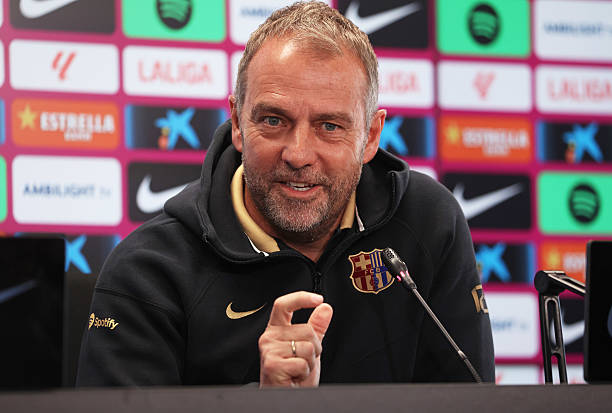When Alan Hansen famously claimed in 1995 that “you can’t win anything with kids,” Manchester United’s Class of ’92 quickly made him eat his words. Fast forward nearly 30 years, and Hansi Flick’s youthful Barcelona side has rewritten that script once more, clinching the La Liga title and Copa del Rey in a dazzling Double that has captivated the footballing world.
Barcelona’s resurgence under Hansi Flick has been a story of belief, bravery, and the bold embrace of youth. With an average age of just 25—the lowest in La Liga—Barcelona didn’t merely win trophies. They restored joy to the Camp Nou faithful with a style of football that was equal parts fearless and flamboyant.
Central to this revival has been Flick’s faith in his “young musketeers”: 17-year-old Lamine Yamal, 18-year-old Pau Cubarsí, 21-year-old Alejandro Balde, and midfield maestro Pedri, still only 22. Each has played beyond their years, blending talent with tenacity. But youth alone doesn’t explain the transformation—it’s Flick’s vision that turned promise into silverware.
When the former Bayern and Germany boss took over last summer, Barcelona were not only struggling on the pitch, but off it as well. Financial constraints meant big-money signings were off the table. Players like Frenkie de Jong, Robert Lewandowski and Raphinha felt undervalued and out of sync with the previous regime.
Flick’s first move? Restore trust. He made it clear to the senior players that they were integral to his plans. Lewandowski responded with 25 goals; Raphinha, once often subbed off before the hour mark, added 18 in the league. De Jong became the side’s heartbeat, anchoring the midfield with leadership and precision.
Read also: Jacobo Ramon’s late winner delays Barcelona title party
But it was Flick’s reimagining of Barcelona’s structure that truly defined this campaign. Youth wasn’t just promoted—it was empowered. He let the young players lead, even allowing them to choose the dressing-room music. They repaid him with vibrant performances and an infectious team spirit.
The manager also worked wonders behind the scenes. Players say he listens. Injuries and fatigue are managed in consultation with them, creating mutual respect. This approach has particularly benefited Lamine Yamal, whose development has been managed with remarkable care. The teen prodigy is already the youngest player to make 100 Barcelona appearances—and in this season’s Clásico, he outran and out-defended even the seasoned centre-backs.
Flick also demanded more from his defence. Veteran centre-back Iñigo Martínez was asked to play a high line, a system alien to his previous roles. Despite lacking pace, Martínez adjusted through sheer discipline and guidance, becoming the marshal of a risky but relentless back line.
Discipline extends off the pitch too. Flick insists on punctuality—players like Jules Koundé and Iñaki Peña have been benched for tardiness. And in an age of designer fashion, Flick has enforced uniform club attire for away matches, including among the board.
It’s no surprise, then, that this team, united in vision and spirit, plays with such cohesion. Flick sets the strategy, but players like Yamal, Raphinha and De Jong drive the engine. They’ve bought into the philosophy completely, often rescuing games from the brink with a blend of grit and grace.
Still, it’s not perfect. Conceding 24 goals in 14 Champions League matches and falling short of the final shows that balance is needed. Flick’s goal for next season is clear: blend their attacking chaos with a touch more control.
With one year left on his deal, Flick isn’t rushing to commit long-term. But for now, Barcelona are back. Champions, entertainers, and perhaps the start of a new dynasty.
And just like Ferguson’s Class of ‘92, this could be only the beginning.



